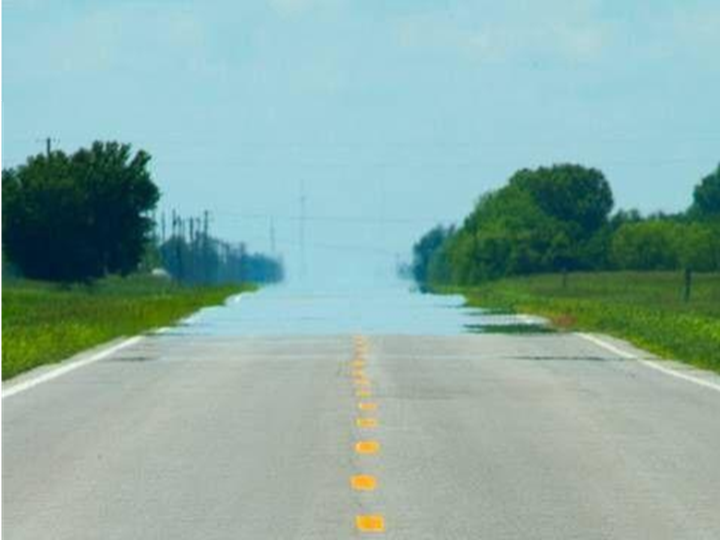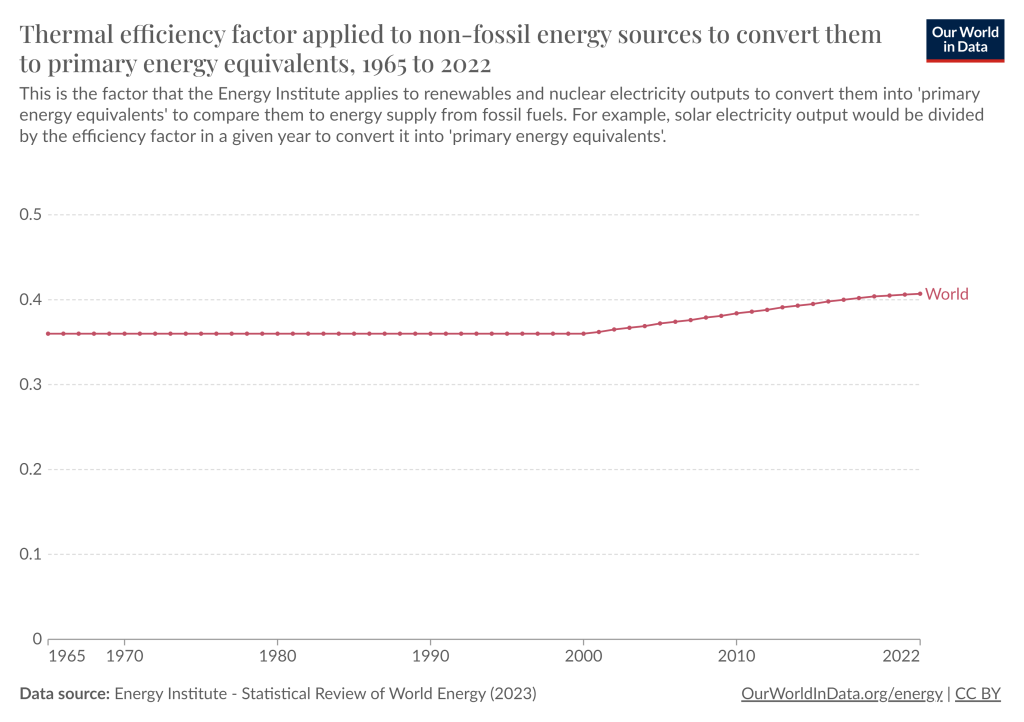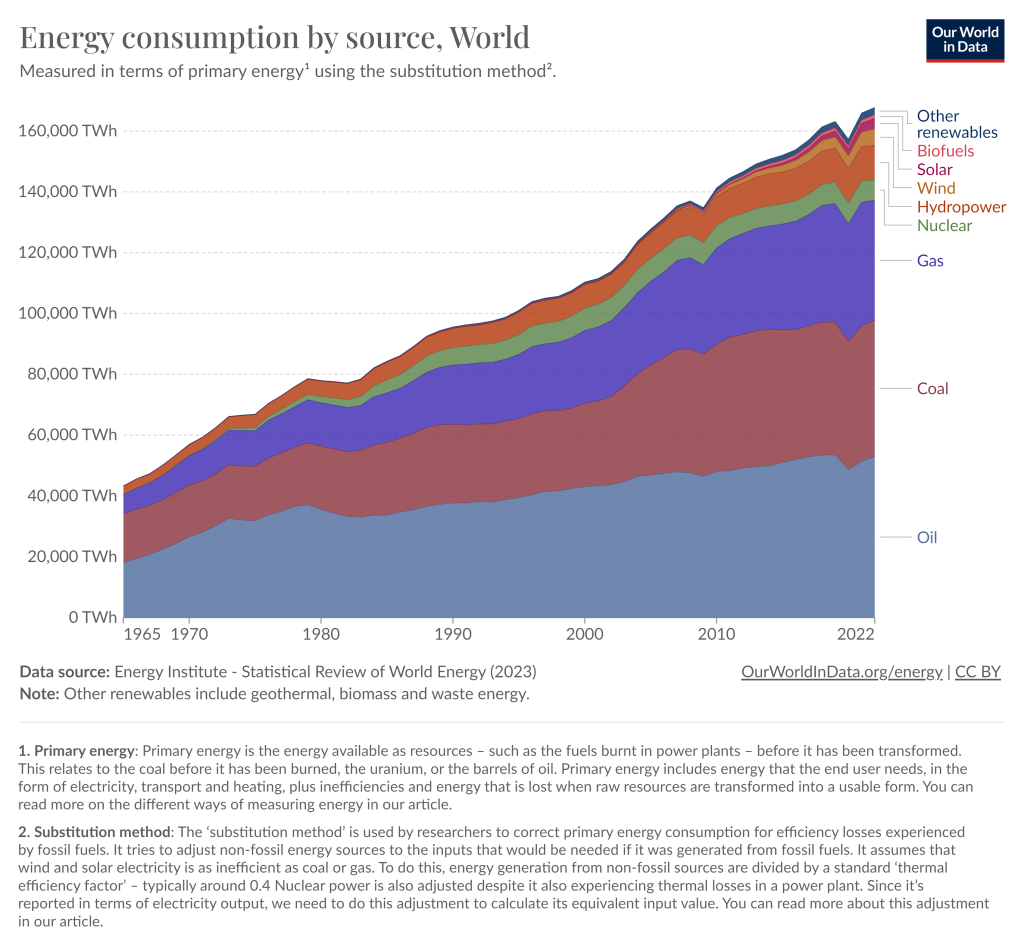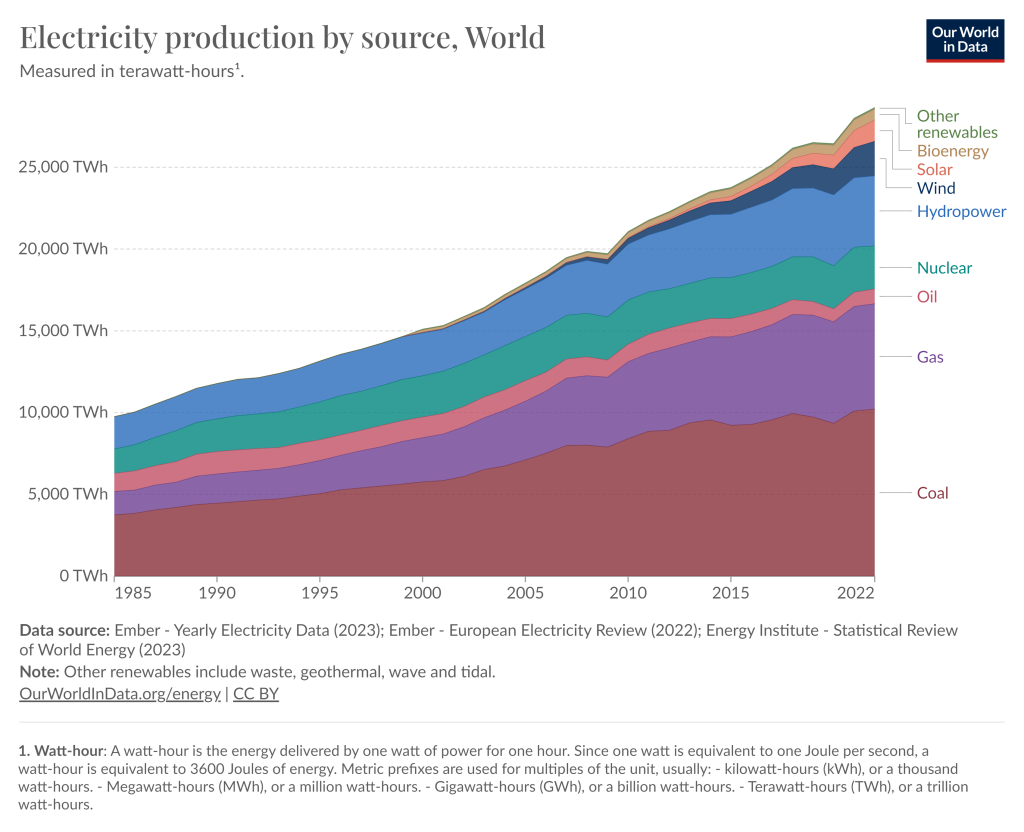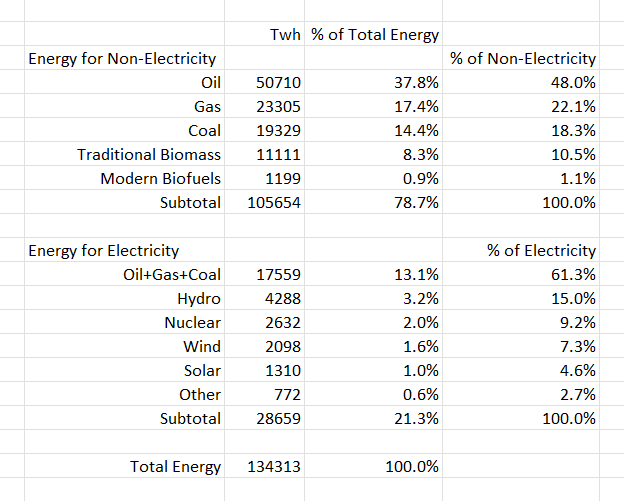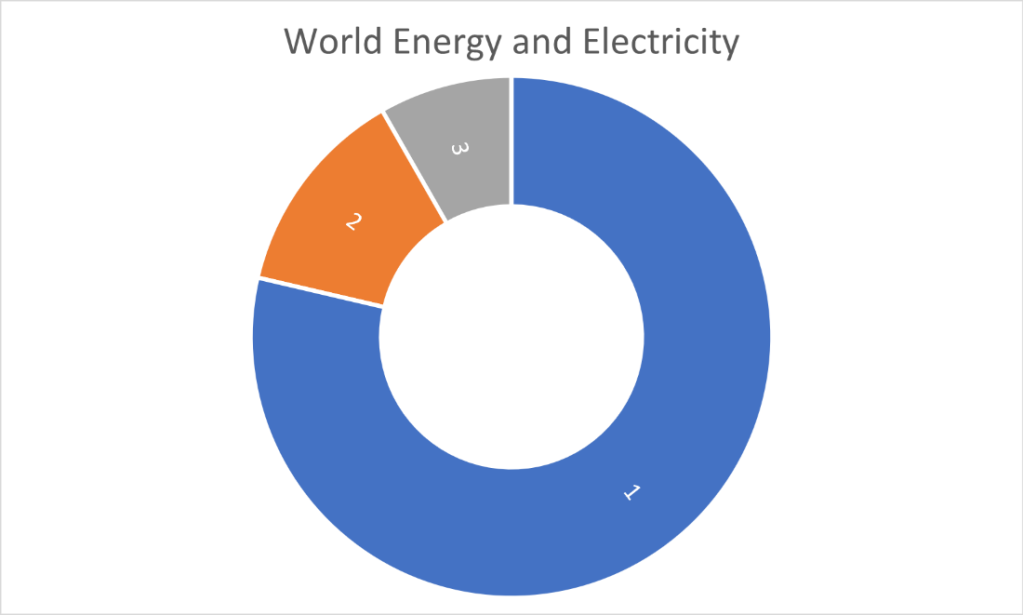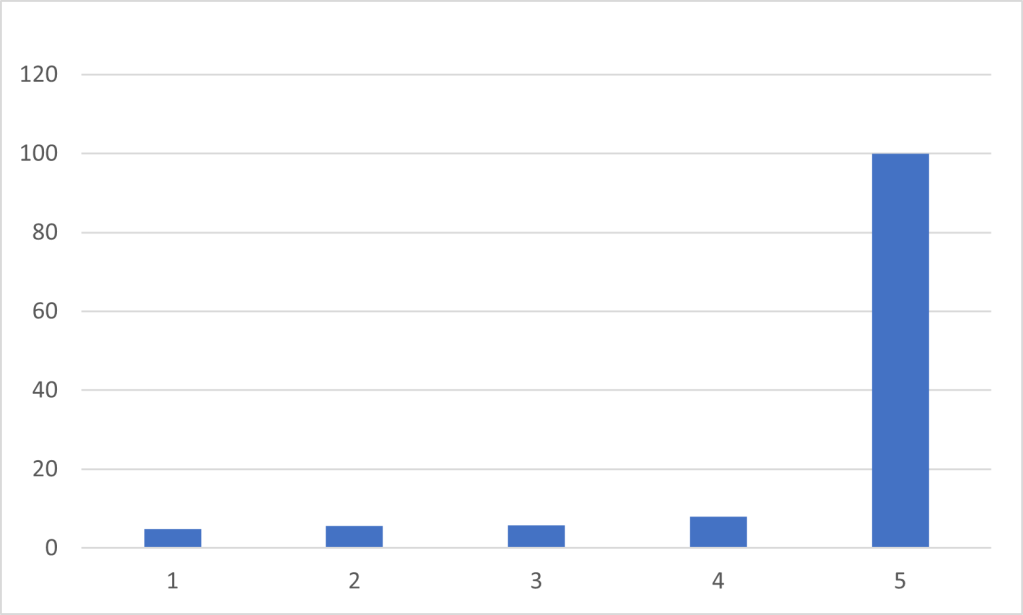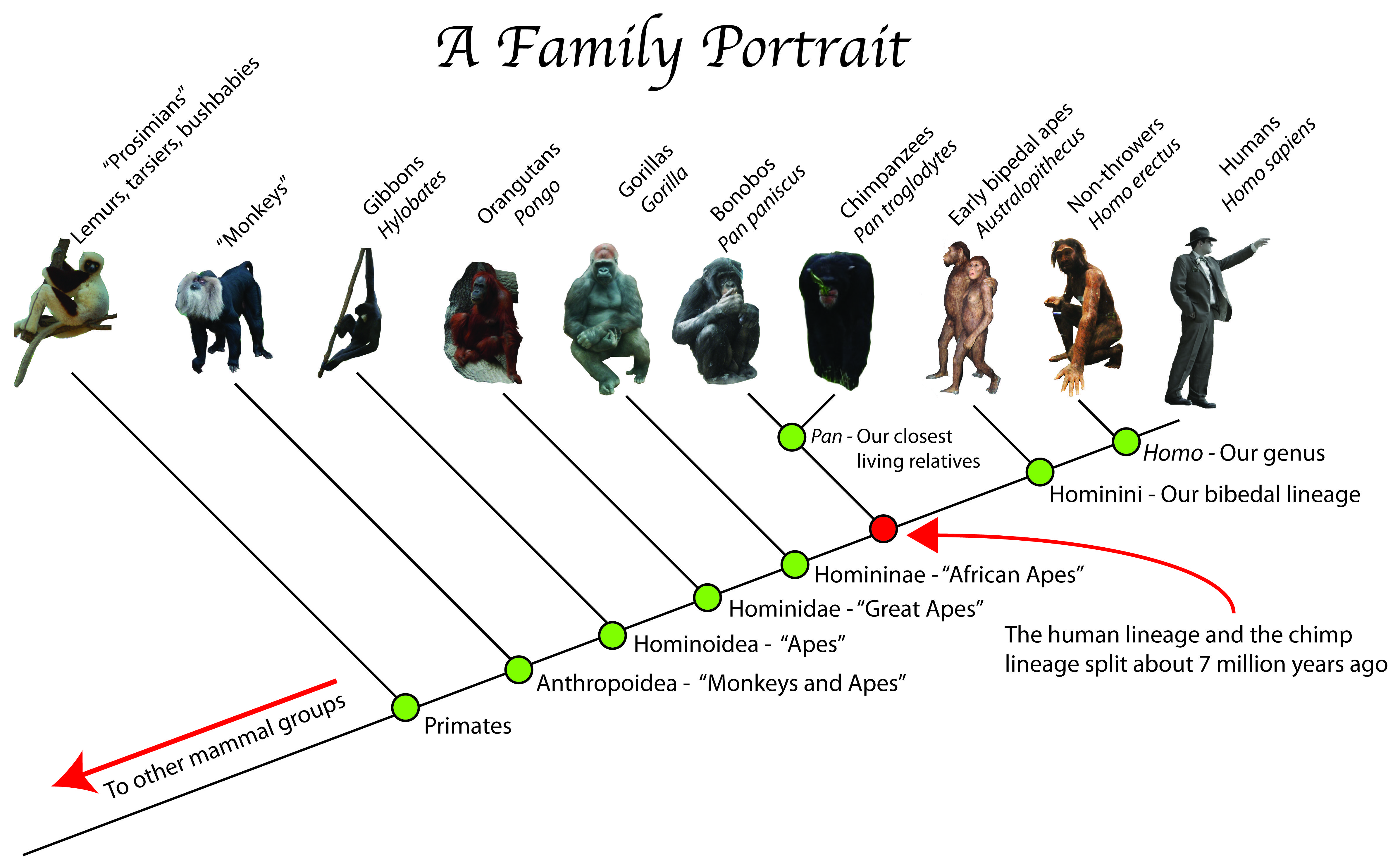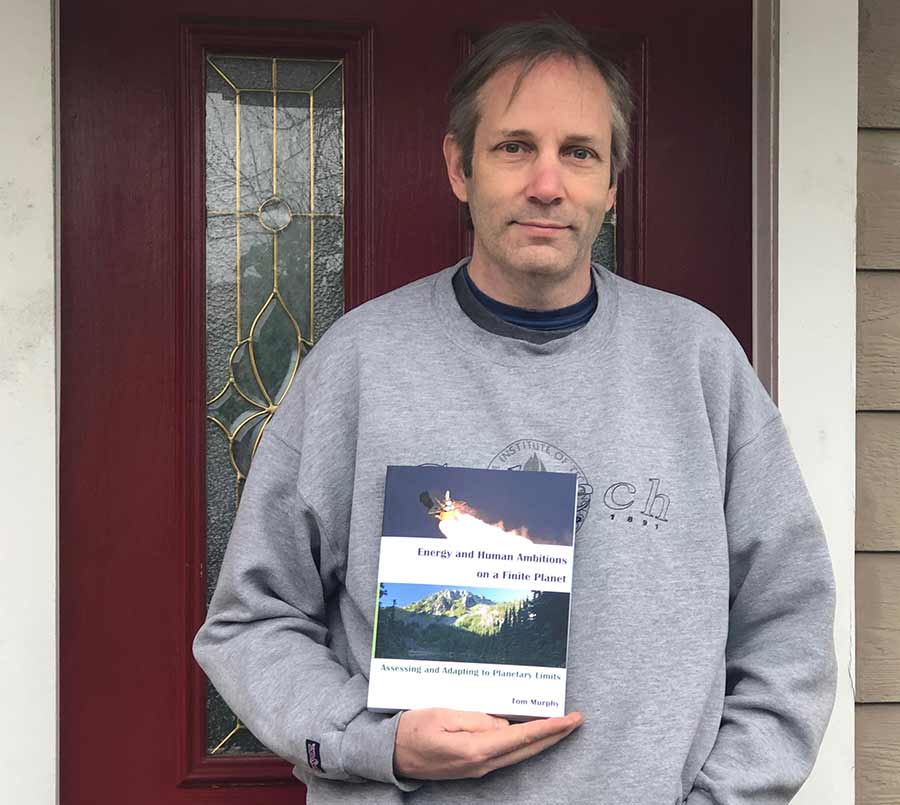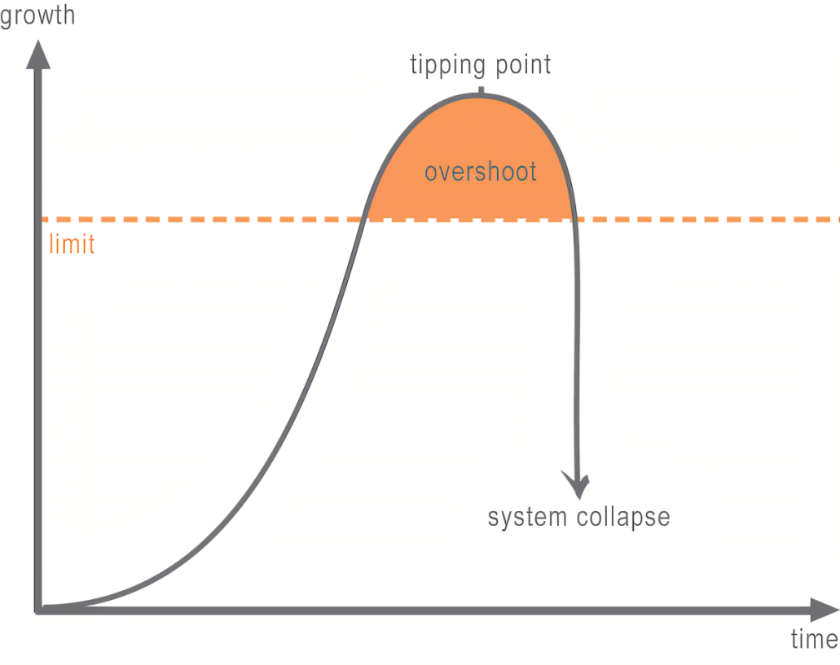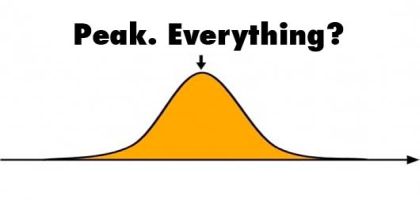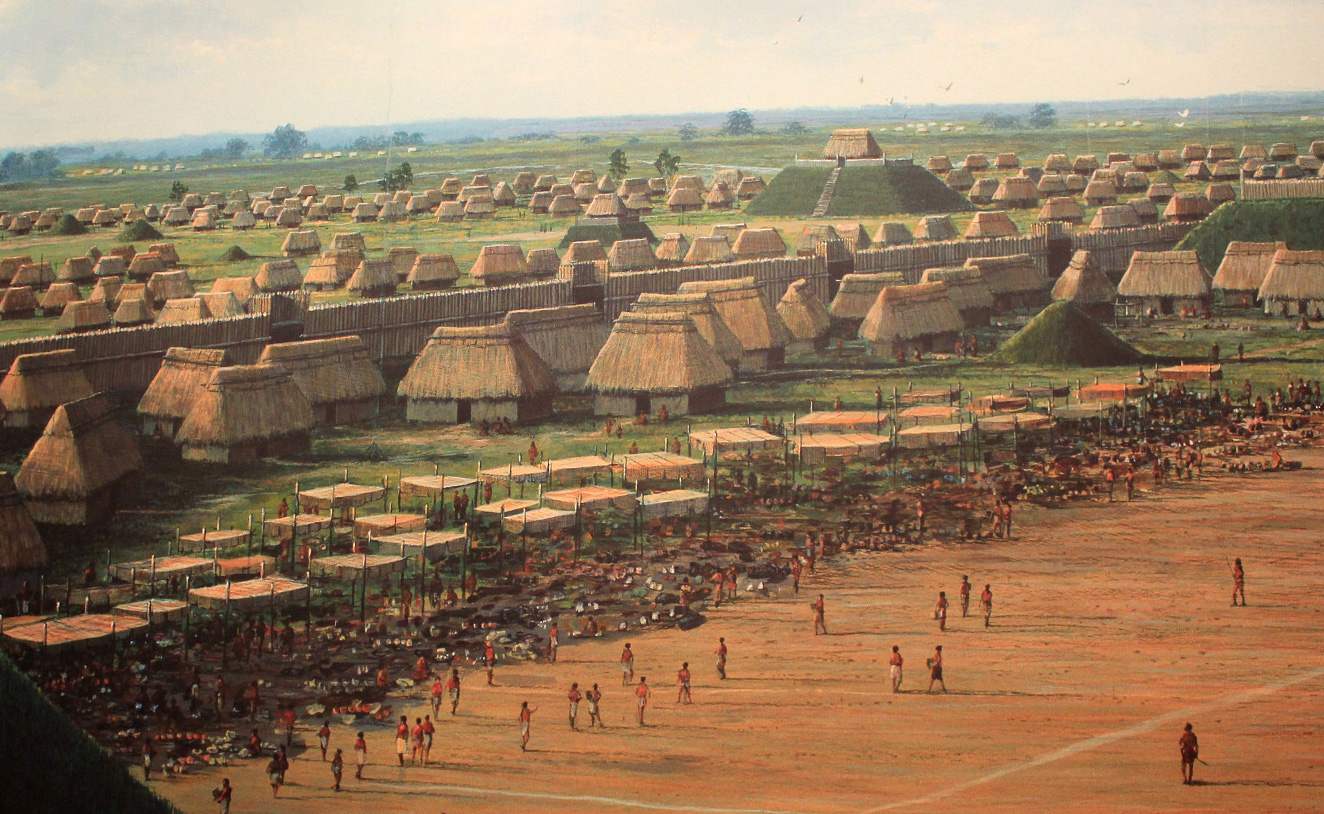
Today’s post includes a recent sobering comment on overshoot reality by un-Denial regular Hideaway that I thought deserved more visibility, and a new essay on acceptance by B, who has recently emerged as one of the best writers about human overshoot.
The ideas of Hideaway and B complement some of the recent discussions here about acceptance and the nature of our species.
P.S. I did not receive permission from B to re-post his essay but I’m hoping that since un-Denial is not monetized he will not object, and I will of course remove the essay if B expresses concern.
By Hideaway: On Radical Reality
The human enterprise of modernity and 8.1+ billion humans is going down. Reduction in available energy is the trigger and there is nothing we can do to stop it, or make it less unpleasant, or save the macrofauna from extinction.
As we build more energy machines of any type, their output increases overall energy available, and used, providing this happens faster than the retirement of old energy producing machines. Over the last few decades we, as in humanity in it’s entirety, have increased fossil fuel use developing more, tearing up the environment more, while increasing the build of renewables.
On a world wide scale, we have not replaced any fossil fuel use, we have just increased all energy use with more fossil fuels being part of that increase, and renewables being part of the increase. At some point growing energy use must stop, unless we make the planet uninhabitable for all life, which means we stop anyway.
Because of our economic system, as soon as we stop growing energy production and use, the price of energy goes up, and we go into recession/depression. It becomes impossible to build ‘new’ stuff of any kind once energy use declines, unless we take the energy from other users, for our ‘new’ builds.
Building more renewables, batteries, EVs, etc., currently means using more fossil fuels to build it all. There is no realistic attempt to build it all with electricity from renewables, nor is that possible. If we diverted existing renewable energy production to, for example, a new mine, then that renewable energy, removed from a city, would have to be made up by increasing fossil fuel generated electricity for the city.
If we ‘ran’ the new mine from new renewables, then these have to be built first, meaning we need the mine for the minerals to build the renewables, or we take minerals from existing users, elsewhere. It’s all just more, more, more and none of the proponents of renewables, including major green organizations want to acknowledge it.
The circular economy can’t work as we cannot physically recycle everything, plus we would need to build all the recycling facilities. If we were to try and do this without increasing total energy use, where does the energy come from to build these new recycling facilities? Other energy users? For the last couple of centuries it’s always come from ‘growth’, especially in energy use. None of us, nor our parents or grandparents, have known a world where the amount of energy available to humanity does anything other than grow.
Because of losses of all materials due to entropy and dissipation into the environment, we will always need mining, of ever lower ore grades, meaning an increasing energy use for mining. It is simply not possible to maintain output from mines once we go to zero energy growth, unless the energy comes from other uses, and users.
Once energy production growth stops, the price of all energy rises, because we need energy production to go up just to maintain the system, as population grows, ore grades decline, etc. If energy production was to fall, the price becomes higher, making everything else cost more. We can see this on a micro scale every time an old coal power plant is closed. On average, the wholesale price of electricity goes up, until compensated for by some newer form of electricity production (the new source taking energy to build).
Visions for the future usually include extra energy efficiency for buildings, etc. but never, ever, include the energy cost of these energy efficiency gains. For example, a simple hand wave about using double glazed or triple glazed windows. To do this, on a worldwide scale, we would need to build a lot of new glass factories, and probably window manufacturers as well. It will take more energy to do this, just like everything else ‘new’.
The phrase ‘build new’ means more energy is required for construction and mining the minerals for the new or expanded factories. The Adaro coal power plant (new) and aluminium smelter (also new) in Indonesia are perfect examples of our predicament. The world needs more aluminium for ‘new’ solar PVs, EVs, wiring, etc. which means more energy use and environmental damage, regardless of whether we use fossil fuels, solar panels, or pumped hydro backup.
Civilization is a Ponzi scheme energy trap, we either grow energy and material use, or we stagnate, and then collapse. Following feedback loops, we see there is no way out of this predicament.
People often claim the future is difficult to predict, yet it is simple, obvious, and highly predictable for humanity as a whole. We will continue to use more energy, mine more minerals, and destroy more of the environment, until we can’t. The first real limit we will experience is oil production, and we may be there already.
Once oil production starts to fall with a vengeance as it must, say 2-3 million barrels/day initially, then accelerating to 4-5 million barrels/day, it will trigger a feedback loop of making natural gas and coal production more difficult as both are totally dependent upon diesel, thus reducing the production of both, or if we prioritize diesel for natural gas and coal production, then other consumers of diesel, like tractors, combines, trucks, trains, and ships, must use less.
Mining and agriculture will come under pressure, sending prices for all raw materials and food through the roof. World fertilizer use is currently above 500 million tonnes annually. A lot of energy is required to make and distribute fertilizer. World grain yields are strongly correlated to fertilizer use, so less energy means less fertilizer, which means less food, unless we prioritize energy for agriculture by taking energy from and harming some other part of our economy.
If we banned discretionary energy uses to keep essential energy uses going, while overall energy continues to decline, then large numbers of people will lose their jobs and experience poverty, further compounding the problems of scarcity and rising prices.
Money for investing into anything will dry up. If governments print money to help the economy, inflation will negate the effort. If governments increase taxes to fund more assistance, then more people and businesses will be made poorer.
The ability to build anything new quickly evaporates, people everywhere struggle between loss of employment, loss of affordable goods and services, increased taxation, and will be forced to increase the well-being of their immediate ‘group’ to the detriment of ‘others’. Crime rates go through the roof, the blame game increases, with some trying to dispossess others of their resources. This will occur for individuals, groups and countries. Crime and war will further accelerate the decline in energy production, and the production and shipment of goods in our global economy. One after the other, at an accelerating rate, countries will become failed states when the many feedback loops accelerate the fossil fuel decline. Likewise for solar, wind and nuclear.
We rapidly get to a point where our population of 8.1+ billion starts to decline, with starving people everywhere searching for their next meal, spreading from city to country areas, eating everything they can find, while burning everything to stay warm in colder areas during the search for food. Every animal found will eaten. Farming of any type, once the decline accelerates, will not happen, because too many people will be eating the seed, or the farmer. Cows, sheep, horses, chooks, pigs, deer, basically all large animals will succumb because of the millions or billions of guns in existence and starving nomadic people.
Eventually after decades of decline, humans will not be able to be hunter gatherers as we will have made extinct all of megafauna. Whoever is left will be gatherers of whatever food plants have self-seeded and grown wild. Even if we were able to get some type of agriculture going again, there would be no animals to pull plows, all old ‘machinery’ from decades prior would be metal junk, so food would remain a difficult task for humans, unless we found ways to farm rabbits and rats, without metal fencing. While we will use charcoal to melt metals found in scavenged cities, it will limited to producing a few useful tools, like harnesses to put on the slaves plowing the fields, or for keeping the slaves entrapped.
Once we go down the energy decline at an accelerating rate, nothing can stop complete collapse unless we can shrink population much faster than the energy decline, which itself may very well be pointless as we have created such a globalised economy of immense complexity, where fast population decline, has it’s own huge set of problems and feedback loops.
Our complex economy requires a large scale of human enterprise. Reduce the scale, and businesses will have less sales, making everything more expensive. Rapid population decline will mean many businesses won’t just reduce production, but will often stop altogether when the business goes bust.
Because of interdependencies of our complex products, a scarcity of one seemingly uncritical component will have far reaching effects on other critical products. Maintenance parts will become difficult to obtain, causing machinery to fail, in turn causing other machines to fail that depended on the failed machines. Think of a truck delivering parts required to fix trucks. The same applies to production line machines, processing lines at mines, or simple factories making furniture, let alone anything complicated. If we only reach population decline as energy declines the problem is still the same.
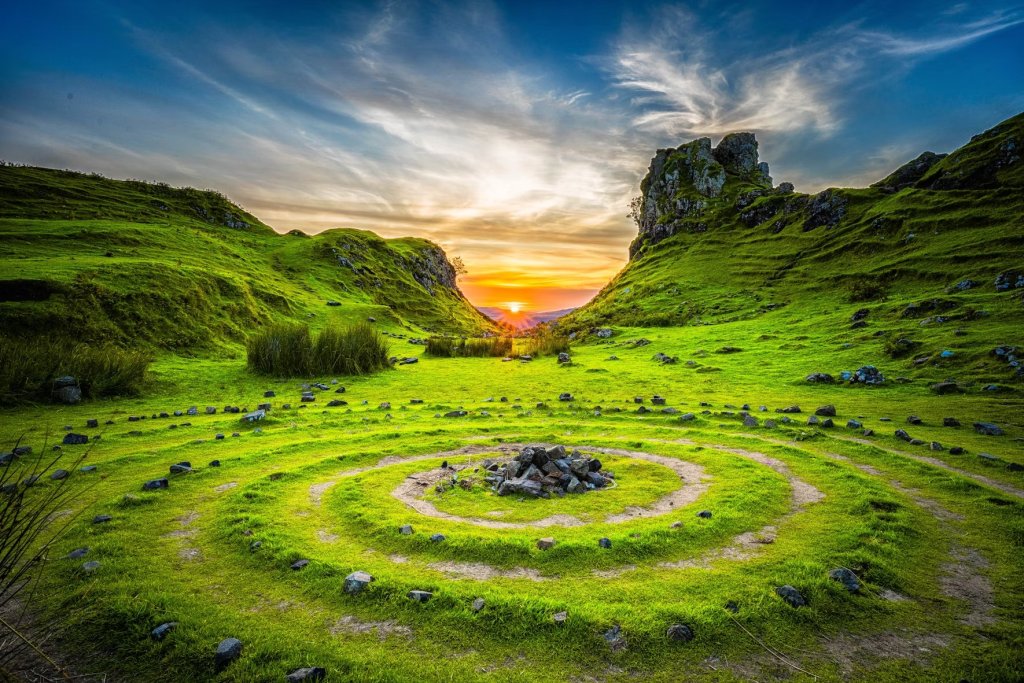
By B: On Radical Acceptance
https://thehonestsorcerer.substack.com/p/on-radical-acceptance
So what is radical acceptance? For me, it means: accepting that no single technological civilization based on finite resources is sustainable. Neither in the bronze age, nor in the iron age; let alone in an era of industrial revolutions. None. Why? Because all spend their nest egg — be it fertile topsoil, forests or coal, lithium and copper — a million times faster than it can be replenished. Recycling and “sustainability” practices can only slow down the process somewhat… At least in theory, but rarely in practice. The “circular economy”, together with „renewables” are nothing but fairy tales we tell ourselves to scare off the wolfs at night. Sorry to be this blunt, but the decline of this techno-industrial civilization is inevitable, and is already well underway.
The only type of civilization (if you want to use that term), which proved to be more or less sustainable so far, was a basic hunter-gatherer society; complemented perhaps with some agroforestry, pottery and some low key metallurgy. Anything beyond that inevitably destroyed the soil and the very resource base supporting the entire edifice. With that said, I’m not suggesting that we should immediately go back to the caves and mud huts… That would be impossible for 4 billion of us, entirely supported by large scale agriculture based on artificial fertilizers and a range of pesticides. However, it is important to note, that this is the direction we are headed, with the only question being how fast we will get there and how many humans can be sustained via such a lifestyle.
And this is where acceptance comes into view. Once you understand (not just “know”) that burning through a finite amount of mineral reserves at an exponential pace leads to depletion and environmental degradation at the same time, you start to see how unsustainable any human civilization is. All that technology (in its narrowest technical sense) does is turning natural resources into products and services useful for us, at the cost of polluting the environment. Technology use is thus not only the root cause of our predicament, but it can only accelerate this process. More technology — more depletion — more pollution. Stocks drawn down, sinks filling up. Simple as that. Of course you can elaborate on this matter as long as you wish, conjuring up all sorts of “game changer” and “wonder” machines from fusion to vertical gardens, the verdict remains the same. It. Is. All. Unsustainable. Period.
There are no clean technologies, and without dense energy sources like fossil fuels there wont be any technology — at least not at the scale we see today.
Many people say: Oh this is so depressing! And I ask: why? Because your grand-grand children will have to work on a field and grow their own food? Or that you might not even have grand-grand children? I don’t mean that I have no human feelings. I have two children whom I love the most. I have a good (very good) life — supported entirely by this technological society. Sure, I would love to see this last forever, and that my kin would enjoy such a comfortable life, but I came to understand that this cannot last. Perhaps not even through my lifetime. I realize that I most probably will pass away from an otherwise totally treatable disease, just because the healthcare system will be in absolute shambles by the time I will need it the most. But then what? Such is life: some generations experience the ‘rising tide lift all boats’ period in a civilization’s lifecycle, while others have to live through its multi-decade (if not centuries) long decline.
I did feel envy, shame, and anxiety over that, but as the thoughts I’ve written about above have slowly sunk in, these bad feelings all went away. It all started look perfectly normal, and dare I say: natural. No one set out to design this modern iteration of a civilization with an idea to base it entirely on finite resources; so that it will crash and burn when those inputs start to run low, and the pollution released during their use start to wreck the climate and the ecosystem as a whole. No. It all seemed like just another good idea. Why not use coal, when all the woods were burnt? Why not turn to oil then, when the easily accessible part of our coal reserves started to run out? At the time — and at the scale of that time — it all made perfect sense. And as we got more efficient, and thus it all got cheaper, more people started to hop onboard… And why not? Who wouldn’t want to live a better life through our wondrous technologies? The great sociologist C. Wright Mills summed up this process the best, when writing about the role of fate in history:
Fate is shaping history when what happens to us was intended by no one and was the summary outcome of innumerable small decisions about other matters by innumerable people.
Scientifically speaking this civilization, just like the many others preceding it, is yet another self organizing complex adaptive system. It seeks out the most accessible energy source and sucks it dry, while increasing the overall entropy of the system. We as a species are obeying the laws of thermodynamics, and the rule set out in the maximum power principle. Just like galaxies, stars, a pack of wolves, fungi or yeast cells. There is nothing personal against humanity in this. We are just a bunch of apes, playing with fire.
Once I got this, I started to see this whole process, together with our written history of the past ten thousand years, as an offshoot of natural evolution. Something, which is rapidly reaching its culmination, only to be ended as a failed experiment. Or, as Ronald Wright put it brilliantly in his book A Short History of Progress:
Letting apes run the laboratory was fun for a while, but in the end a bad idea.
So, no. I’m not depressed at all. It was fun to see how far a species can go, but also reassuring that it was a one off experiment. Once this high tech idiocy is over, it will be impossible to start another industrial revolution anyway. There will be no more easy to mine, close to surface ores and minerals. Everything left behind by this rapacious society will remain buried beneath a thousand feet of rocks, and will be of such a low quality that it will not worth the effort. Lacking resources to maintain them, cities, roads, bridges will rust and crumble into the rising seas, while others will be replaced by deserts, or lush forests. The reset button has been pressed already, it just takes a couple of millennia for a reboot to happen.
Contradictory as it may sound: this is what actually gives me hope. Bereft of cheap oil, and an access to Earth’s abundant mineral reserves, future generations of humans will be unable to continue the ecocide. There will be no new lithium mines, nor toxic tailings or hazardous chemicals leaching into the groundwater. Our descendants will be forced to live a more sustainable, more eco-friendly life. There will be no other way: the ecocide will end. This also means, that there will be no “solution” to climate change, nor ecological collapse. They both will run their due course, and take care of reducing our numbers to acceptable levels. Again, don’t fret too much about it: barring a nuclear conflict, this process could last well into the next century, and beyond. The collapse of modernity will take much longer than any of us could imagine, and will certainly look nothing like what we see in the movies. And no, cutting your emissions will not help. At all. Live your life to its fullest. Indulge in this civilization, or retreat to a farm. It’s all up to you, and your values. This is what I mean under the term, radical acceptance.
We are a species of this Earth, and paraphrasing Tom Murphy, we either succeed with the rest of life on this planet or go down together. Nurturing hope based technutopian “solutions”, and trying to remain optimistic does not solve anything. This whole ordeal is unsustainable. What’s more, it was from the get go… And that which is unsustainable will not be sustained. And that is fine. We, as a species are part of a much bigger whole, the web of life, and returning to our proper place as foraging humanoids will serve and fit into that whole much better than any technutopian solution could.
Until next time,
B



